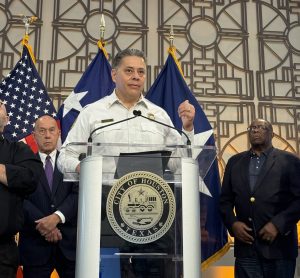
Starting February 6th, individuals convicted of smuggling immigrants into Texas will face a mandatory minimum prison sentence of 10 years, following the enactment of Senate Bill 4 (SB 4). This stringent measure represents a significant shift in state policy and is part of Republican Governor Greg Abbott’s broader agenda to address illegal immigration.
SB 4, approved by Texas lawmakers during their third special legislative session in October, aims to combat human smuggling by increasing penalties for offenders. Under this new law, the minimum sentence for smuggling humans has been raised from two years to a mandatory 10 years. Additionally, a five-year minimum sentence has been established for harboring undocumented immigrants in “stash houses.”
Governor Abbott highlighted the urgency of addressing human smuggling, citing a drastic increase in arrests related to this crime in recent years. He pointed out that while there were 370 arrests for smuggling illegal immigrants in Texas in 2017, this number surged to 7,700 arrests by 2023.
Supporters of SB 4 argue that it will effectively target criminal organizations, including drug cartels, involved in human trafficking. However, critics, including immigrant rights advocates, have raised concerns about potential racial profiling and the law’s effectiveness in deterring criminals.
The American Civil Liberties Union (ACLU) of Texas has estimated that SB 4 could cost taxpayers over $1 billion annually. Nick Hudson, a policy and advocacy strategist for the ACLU of Texas, criticized the law, stating that harsh sentences like those in SB 4 exacerbate racial disparities and are ineffective in deterring crime.
In response to questions raised during legislative debates, lawmakers clarified that SB 4 does not change the existing definition of smuggling under state law. They emphasized that individuals must knowingly engage in activities such as encouraging or inducing undocumented individuals to enter or remain in the country illegally to be charged with smuggling.
Beyond SB 4, Governor Abbott has signed two other immigration-related bills into law. Senate Bill 3 allocates $1.54 billion to fund the construction of a border wall along the Texas-Mexico border, while another bill, also named SB 4 from the fourth special session, grants Texas the authority to arrest and deport migrants who enter the state illegally.
However, these measures have faced legal challenges, with the U.S. Department of Justice, El Paso County, and immigrant rights groups suing Texas to block implementation. Critics argue that these laws encroach upon federal immigration authority and could exacerbate tensions along the border. Governor Abbott maintains that Texas must enact its own immigration laws to address what he calls a “border crisis.”
Both SB 3 and the fourth special session’s SB 4 are scheduled to become law on March 5th.










